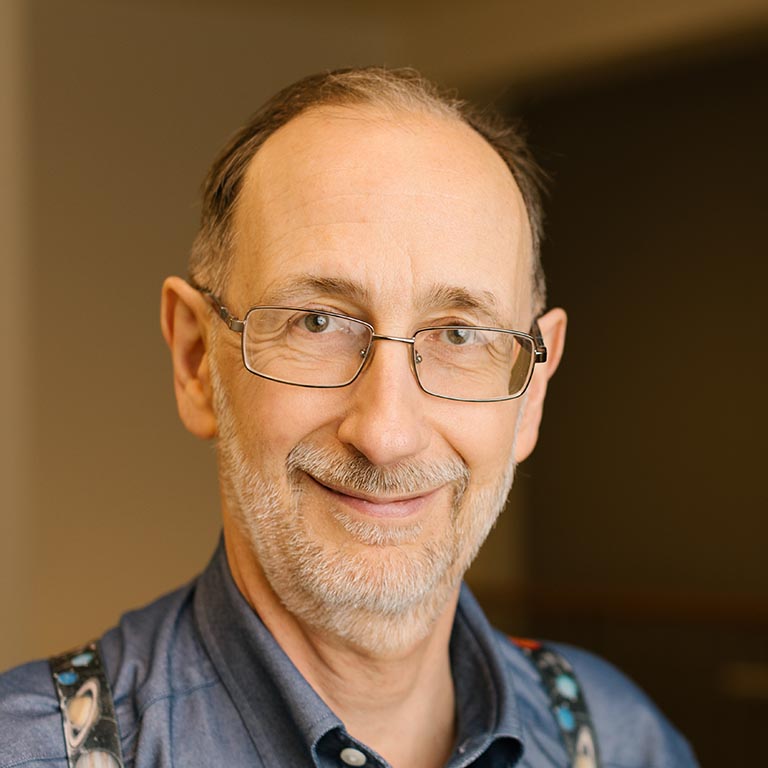- High Energy Postdoctoral Position, Northwestern University, 1990
- Ph.D., Experimental Particle Physics, Northwestern University, 1986
- B.A., Physics, Northwestern University, 1981

Frederick C. Luehring
Senior Scientist, Physics

Senior Scientist, Physics
high energy physics (software); grid computing
My current work is on software and computing for the ATLAS high energy physics (HEP) experiment at CERN’s Large Hadron Collider (LHC). HEP studies the basics nature of the universe and has and has developed and confirmed the spectacularly successful Standard Model of particles and interactions over the last 50 years. The standard model describes the subatomic universe as matter (particles) and forces (interactions). In 2011-2012 ATLAS and another experiment (CMS) discovered the last particle predicted by the standard model, the Higgs Boson. Previously I worked on SDC at SSC (canceled) and fixed target experiments at Fermilab and LBNL.
The ATLAS experiment consists of subdetectors to measure different types of particles and I work on a gaseous proportional tube system called the Transition Radiation Tracker (TRT). The TRT detector elements are known as straw tubes measure the momentum of charged particles and help identify electrons. My activities include computer simulations of the TRT geometry and its performance of the TRT at high rates, coordination of monitoring and reconstruction of TRT data, and supervision of student work on the TRT. I have had various leadership roles in managing the TRT software work.
ATLAS processes an enormous amount of data (many Petabytes) and I work on computing infrastructure for the ATLAS offline data production and analysis at the Midwest Tier 2 Center (MWT2) where I am a co-PI. The IU portion of MWT2 runs 8 racks of servers with ~5000 job slots and 80 Gb/s uplink.
I coordinate computing for IU HEP group and manage the Physics department IT staff as chair of the Computer Facilities committee. I enjoy doing public science outreach and advocating for the use of science to make informed public policy.